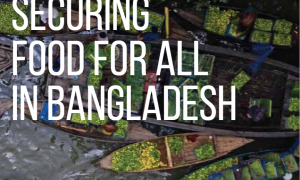India's rice export restrictions and BIMSTEC countries: Implications and recommendations
The Bay of Bengal Initiative for Multi-Sectoral Technical and Economic Cooperation (BIMSTEC) brings together five South Asian countries (Bangladesh, Bhutan, India, Nepal, and Sri Lanka) and two Southeast Asian countries (Myanmar and Thailand).

